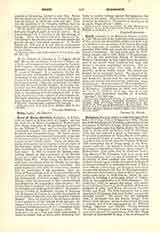

Errington, WILLIAM, priest, founder of Sedgley Park School, b. July 17, 1716; d. September 28, 1768. He was son of Mark Errington of Wiltshire, a descendant of the Erringtons of Walwick Grange, Northumberland; his mother’s maiden name was Martha Baker. In 1737 he went to Douai, took the mission oath December 28, 1741, and was ordained a priest in December, 1747. If he acted as professor at Douai after his ordination, as is generally stated, it could only have been for a very short time, as he left there for England, March 26, 1748 (manuscript list of Douai clergy in the Westminster archives). On arrival in London he took up his residence with Bishop Challoner, then coadjutor to Bishop Petre. Kirk states that Dr. Challoner “had a high opinion of Mr. Errington, both as an active and zealous missionary and as a man of business”. It was on account of these qualities that when the bishop wished to found a good middle-class school in England he induced Errington to undertake the work. It was a most difficult undertaking, and Errington made three unsuccessful attempts, the first in Buckinghamshire, the second in Wales, and the third at Betley near Newcastle-under-Lyne in Staffordshire, before he succeeded in founding a permanent school at Sedgley Park in the neighborhood of Wolverhampton. On Lady-Day, 1763, he opened this school with twelve boys in the house known as the Park Hall, till then the residence of John, Lord Ward, afterwards Viscount Dudley and Ward. The little foundation was at once attacked in Parliament, but Lord Dudley successfully defended himself. The school was not interfered with; it developed into the famous Sedgley Park School which did good service to the Church for over a century, and is now represented by St. Wilfrid’s College, Oakmoor, near Cheadle. Having founded the school, Errington’s work there was done, and as soon as he secured the appointment of the Rev. Hugh Kendall as headmaster in May, 1763, he returned to Bishop Challoner in London. He was appointed archdeacon and treasurer of the “Old Chapter” and held these offices till his death.
EDWIN BURTON

